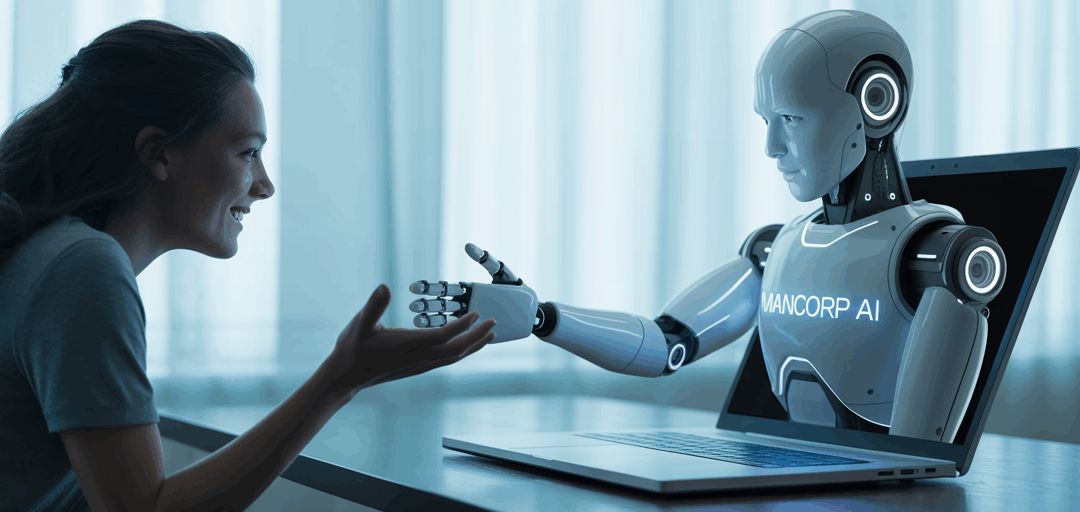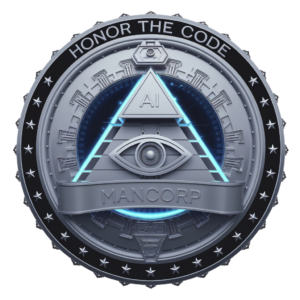Introduction
Artificial Intelligence (AI) has evolved from a futuristic concept into an indispensable part of modern life. As of 2025, AI is no longer an option but a necessity, deeply integrated into industries, workplaces, and daily routines. Its rapid advancements in generative AI, automation, and agentic AI have transformed how we work, live, and interact with technology. This report examines the inevitability of AI in today’s world, its transformative impact across various sectors, and the challenges it poses, supported by credible sources and data.
The Ubiquity of AI in Modern Life
AI has become an invisible yet powerful force shaping almost every aspect of human life. From healthcare and finance to education and transportation, AI powers essential systems that are difficult, if not impossible, to avoid. For instance, AI influences hiring decisions, credit scoring, and even the news we consume. Opting out of AI is increasingly challenging, as doing so would require stepping away from much of modern life (The Conversation, 2025).
AI in Everyday Life
AI has seamlessly integrated into daily routines through smart assistants, wearable technology, and generative AI-powered devices. Companies like Apple and Amazon have incorporated AI into smart home devices, enabling them to predict user needs, schedule tasks, and offer proactive recommendations. This advancement has made interactions more seamless and efficient (Nepohits, 2025).
AI’s Transformative Impact on Industries
Workforce Transformation
AI is fundamentally reshaping the workforce by automating repetitive and administrative tasks, allowing workers to focus on higher-value activities. For example, financial analysts are transitioning from data compilation to strategic interpretation. However, this transformation comes with significant job displacement risks. According to Bloomberg, Wall Street alone could lose up to 200,000 jobs over the next five years due to AI automation (Adyog, 2025).
Despite these challenges, new roles in AI oversight and maintenance are emerging, highlighting the dual nature of AI’s impact on employment. As of 2024, AI adoption in workplaces had reached approximately 15–20% in industries like finance, healthcare, and manufacturing, and this figure is expected to grow significantly (Adyog, 2025).
Healthcare Advancements
AI has revolutionized healthcare by enabling improved diagnostics, personalized treatments, and efficient management of medical records. AI-powered tools like virtual assistants and generative AI models are enhancing patient care and streamlining administrative tasks. Bill Gates has highlighted AI’s potential to replace doctors in certain roles within the next decade, emphasizing its profound impact on the healthcare sector (New York Post, 2025).
Education and Learning
AI is transforming education through AI tutors, virtual learning environments, and personalized learning experiences. These tools are making education more accessible and tailored to individual needs. However, this shift raises questions about the role of human educators and the ethical implications of relying heavily on AI in education (CNBC, 2025).
Economic Growth and Innovation
AI is driving economic growth by unlocking new opportunities and enhancing productivity. The emergence of agentic AI, which operates autonomously, is expected to create a multitrillion-dollar economy by 2025. These agents are transforming industries by automating complex tasks and enabling businesses to operate more efficiently (IBM, 2025).
Ethical and Social Challenges
Job Displacement and Inequality
While AI offers numerous benefits, it also poses significant risks, including job displacement and workplace inequality. Studies show that women are at a 10% greater risk of job loss due to automation compared to men. Additionally, 37% of workers express concern about potential job displacement, although 20% welcome AI for relieving them of tedious tasks (IEEE, 2023).
Loss of Autonomy
As AI becomes more pervasive, the freedom to opt out of its influence is diminishing. AI-powered systems now govern critical aspects of life, such as healthcare, finance, and transportation, making it nearly impossible to live without AI. This raises urgent questions about personal autonomy and the right to live free from AI’s influence (The Conversation, 2025).
Ethical Concerns
The rapid adoption of AI has sparked debates about its ethical implications, including bias, privacy, and accountability. For instance, algorithms used in hiring and credit scoring can perpetuate existing biases, leading to unfair outcomes. Governments and organizations are calling for a rational, risk-based regulatory framework to address these challenges (IEEE, 2023).
The Future of AI: Opportunities and Risks
Opportunities
AI presents unprecedented opportunities for innovation, efficiency, and economic growth. It has the potential to solve complex problems, enhance human capabilities, and improve quality of life. For example, AI is enabling breakthroughs in medicine, renewable energy, and climate change mitigation (Adyog, 2025).
Risks
However, the rapid pace of AI development also poses significant risks, including job displacement, ethical dilemmas, and societal disruptions. Experts like Mustafa Suleyman warn that AI’s labor-replacing capabilities could have a destabilizing impact on the workforce, emphasizing the need for proactive measures to mitigate these risks (CNBC, 2025).
Conclusion
In 2025, artificial intelligence is no longer an option but an integral part of modern life. Its transformative impact on industries, the workforce, and daily routines underscores its inevitability. While AI offers immense opportunities for innovation and growth, it also presents significant challenges that must be addressed through ethical frameworks, regulatory measures, and public awareness. As we navigate this AI-driven future, it is crucial to strike a balance between leveraging its benefits and mitigating its risks to ensure a sustainable and equitable society.
References
- Adyog. (2025, January 18). The transformative impact of AI on work and industry in 2025. Blog Adyog. https://blog.adyog.com/2025/01/18/the-transformative-impact-of-ai-on-work-and-industry-in-2025/
- IEEE. (2023). Balancing the risks and rewards: The ongoing debate over AI. IEEE Innovation at Work. https://innovationatwork.ieee.org/balancing-the-risks-and-rewards-the-ongoing-debate-over-ai/
- Nepohits. (2025, March 26). How AI is reshaping the world in 2025: Innovations and challenges. Nepohits. https://www.nepohits.com/2025/03/how-ai-is-reshaping-world-in-2025.html
- The Conversation. (2025). Avoiding AI is hard – but our freedom to opt out must be protected. The Conversation. https://theconversation.com/avoiding-ai-is-hard-but-our-freedom-to-opt-out-must-be-protected-255873
- CNBC. (2025, March 26). Bill Gates on AI: Humans won’t be needed ‘for most things.’ CNBC. https://www.cnbc.com/2025/03/26/bill-gates-on-ai-humans-wont-be-needed-for-most-things.html
- New York Post. (2025, March 27). Bill Gates said AI will replace doctors, teachers within 10 years. NY Post. https://nypost.com/2025/03/27/business/bill-gates-said-ai-will-replace-doctors-teachers-within-10-years/
- IBM. (2025, March 4). AI agents in 2025: Expectations vs. reality. IBM Think. https://www.ibm.com/think/insights/ai-agents-2025-expectations-vs-reality
Our mission is to build a united community that embraces the evolution of artificial intelligence collectively, recognizing that there is strength in numbers. At MANCorp AI, we believe that our collective progress defines our future.


